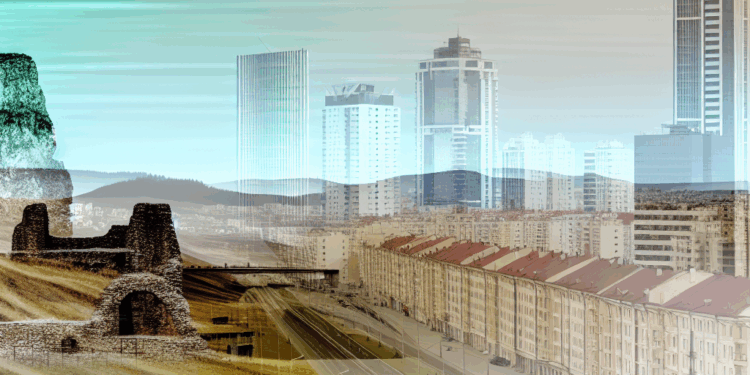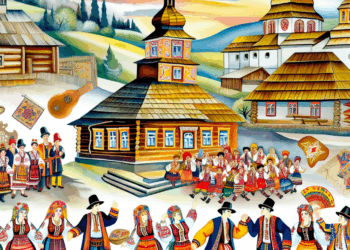Introduction
Bukovina is a multinational and multicultural region, where the traditions of different peoples are intertwined. One of the most significant personalities in the history of Bukovina is Metropolitan Joseph Slipyi. His life and activity left a noticeable trace both in the ecclesiastical and cultural life of the region.
Biography
Birth and education
Joseph Slipyi (in the world – Joseph Stanislav Slipyi) was born on 17 April 1892 in the village of Zaleschitsy, which was part of the then Austro-Hungarian Empire. His parents, Ukrainians by blood, instilled in him a love of Ukrainian traditions and culture. From a young age, Slipyi showed an interest in religion and learning. After graduating from the local gymnasium, he entered Lviv University, where he studied theology and philosophy.
Hegumen and Metropolitan
After graduation, Joseph Slipyi became a priest and was soon ordained to the rank of hegumen. His active stance on Ukrainian identity and culture led to his appointment as Metropolitan of Galicia and Eastern Ukraine in 1944. This period was marked by important events, including World War II and the changes brought about by Soviet rule.
Imprisonment and emigration
With the onset of Soviet rule, Joseph Slipyi faced repression and important challenges for the Ukrainian Church. In 1945 he was arrested and sentenced to 18 years in prison. Despite the difficult circumstances, his church activity did not stop.
In 1963, after international protests, Joseph Slipyi was released and emigrated to Western Europe and then to the United States. Here he continued his pastoral and scientific activities.
Achievements
Joseph Slipyi did much to strengthen the Ukrainian church and culture during the years of his life. His achievements can be divided into several key areas:
Church activities
Slipyi became a spiritual leader for millions of Ukrainians. He fought for the autocephaly of the Ukrainian Greek Catholic Church, which was crucial to preserving Ukrainian identity in the face of political repression. He also contributed to the rebuilding of Ukrainian communities abroad by organising prayer families and spiritual associations.
Scientific work
In addition to his church activities, Joseph Slipyi also engaged in scholarly work. He wrote several books on theology, philosophy, and history of the Ukrainian church. His scientific works contributed to the comprehension of the role of the church in the life of the Ukrainian people and the restoration of historical memory.
Cultural activities
As an active cultural figure, Slipyi supported Ukrainian art and literature. He initiated many cultural projects, including theatres, exhibitions and literature, which helped Ukrainian culture take root in the diaspora.
Impact on the region
The activities of Joseph Slipoho had a significant impact on both the religious life of Bukovyna and the cultural development of the region. His pursuit of autocephaly of the UGCC served as a foundation for future generations of Ukrainian clergy and believers who continued the struggle for the rights and freedoms of the Ukrainian people.
Educational initiatives
Slipyi also raised issues of education and enlightenment. He supported the creation and development of educational institutions where young Ukrainians could learn and develop. Many of his students became famous figures of science and culture.
A lasting legacy
Joseph Slipoho’s legacy also includes his unyielding stance on issues of justice and freedom. His fight for the rights of Ukrainians and their place in the world remains relevant today as Ukraine continues to face challenges to its identity and sovereignty.
Conclusion
Joseph Slipyi is an individual who epitomises the struggle of the Ukrainian people for their identity, freedom and justice. His contribution to the ecclesiastical, cultural and scientific life of Bukovyna and beyond can hardly be overestimated. Despite the difficult challenges he faced, he left a meaningful legacy that continues to inspire and unite people. Time passes, but the lessons he left behind are more important than ever.








